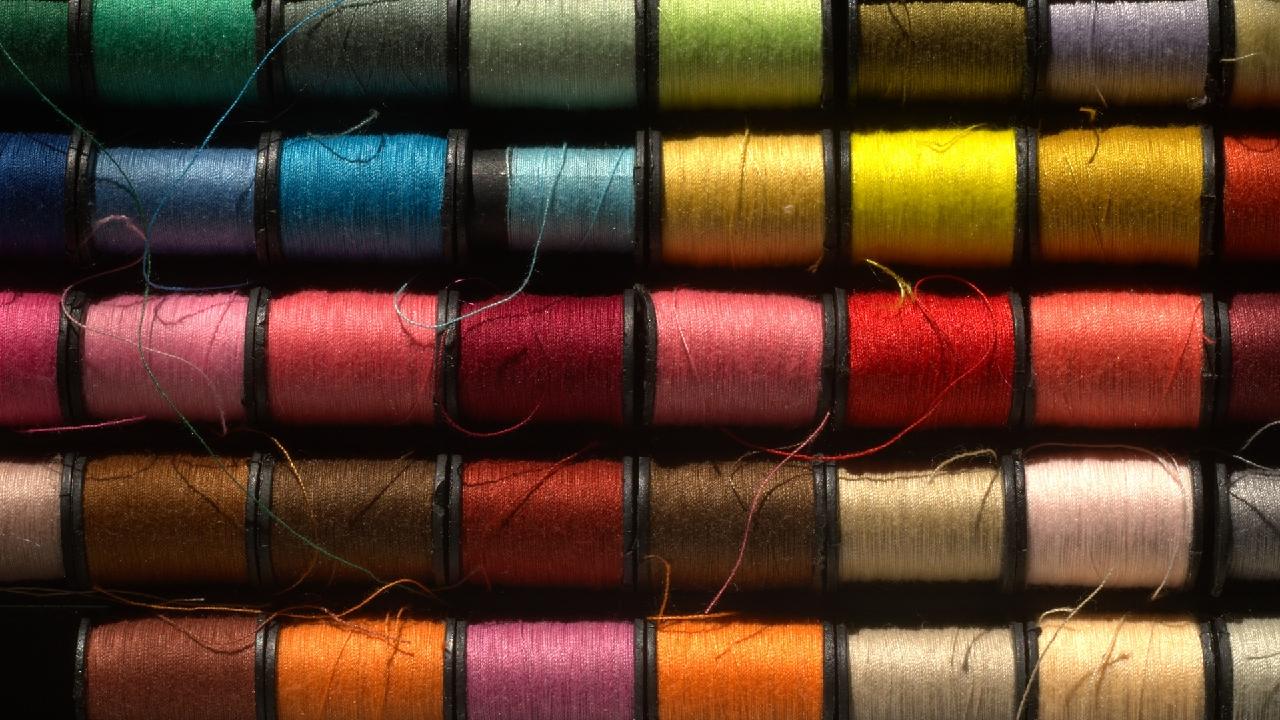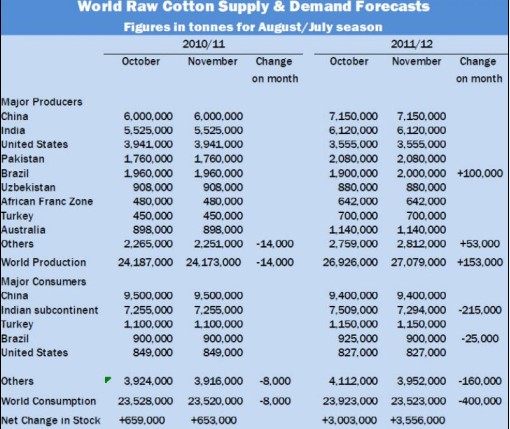|
Cotton prices in India are likely to fall substantially in the next two months as the biggest importer, China, cuts orders at a time when domestic supplies are set to peak and Indian buyers remain on the sidelines as demand for yarn is weak. ---- Cotton supplies to domestic market will peak in early Dec ---- China textile exports hit by recession in Europe, US ----- Indian prices could fall 14 percent to 32,000 rupees per candy Indian cotton, now trading at 37,200 rupees ($710) per candy of 356 kg, or 104,000 rupees ($2,000) per tonne, is set to fall by between 14 percent and 15 percent to 32,000 rupees per candy in December and remain at that level, said B. A. Patel, the country's joint textile commissioner. Traders also said they expected a similar drop. Prices have so far fallen nearly 40 percent since hitting a record high of 61,700 rupees per candy in March. China, which buys more than half of India's cotton exports and is the world's top importer, has booked nearly one million tonnes of cotton from overseas in recent months to replenish state reserves, much higher than the market had expected. But India failed to cash in on this buying spree as its crop arrived late at wholesalers, and its chances have dimmed further now that China is looking to buy cotton locally in the crop year that began in September 2011. "If China remains on the sidelines in markets, domestic prices (in India) will come down," said Chirag Patel, chief executive officer at Jaydeep Cotton Fibers Pvt Ltd, one of the country's leading exporters. India is set to harvest a record crop of 35.6 million bales. Arrivals of cotton should peak from the first week of December to mid-January before receding. Unseasonal rains in September and October, which slowed the pace of cotton picking, have contributed to the delayed arrival of cotton products in Indian markets. Many farmers in the country's second biggest cotton producing state of Maharashtra are also refusing to sell in protest at the minimum price fixed by the federal government. About 3.5 million bales of 170 kg each have reached India's spot markets up to November 20, about 25 percent less than in the same period a year ago, state-run Cotton Corporation of India said. India's tardiness has opened the door to Brazil and Australia to increase shipments to China. China leap-frogged South Korea and Indonesia this year to become Brazil's biggest cotton buyer, importing 104,000 tonnes from January to September, roughly double the amount from the same year-ago period. China also this month bought about 996,100 bales of cotton - the largest purchase of US cotton in eight years. But with the euro zone crisis gripping its main customers for textiles, total cotton imports by China have already dropped close to 10 percent to 1.94 million tonnes in the first 10 months of this year. Major imports are unlikely before the second half of 2012, analysts said. "Chinese cotton prices are beginning to ease. Unless Indian imports offer a significant discount, I doubt there will be much demand," said Ma Wenfeng, a senior analyst at Beijing Orient Agribusiness Consultant Ltd. LITTLE LOCAL HELP Cotton futures on the Zhengzhou exchange stood at 20,040 yuan ($3,184.7) per tonne on Monday, while the most traded Shankar-6 variety was trading at 37,200 rupees per candy, data from trade body Cotton Association of India showed. Local textile makers, who usually make up for any absence of strong export demand, are also struggling due to the global economic slowdown. Consumption from domestic mills is likely to fall by 2.5 percent to 23 million bales in 2011/12, according to the Cotton Advisory Board (CAB). "All domestic mills are buying only hand-to-mouth. In the international market, they are getting disparity in selling yarn. That is why they are cautious," Patel said. Neighbouring Pakistan is also a one of India's key customers, but it has so far avoided placing any large orders as it is expecting to harvest a strong cotton crop of its own. India could export eight million bales of cotton in the year to September 2012, up from seven million in the previous year, a CAB official said last week. "Indian traders have signed contracts for nearly 1.3 million bales so far, mostly to China and Bangladesh at a price band of 105-108 cents per lb FOB," said Arunbhai Dala, a trader from Rajkot in western Gujarat state. brecorder |
|
Indian cotton seen sliding on lower China demand, supply
Updated: 2011-11-30 Source: brecorder

Recommended News
Photo Gallery
Most Popular



